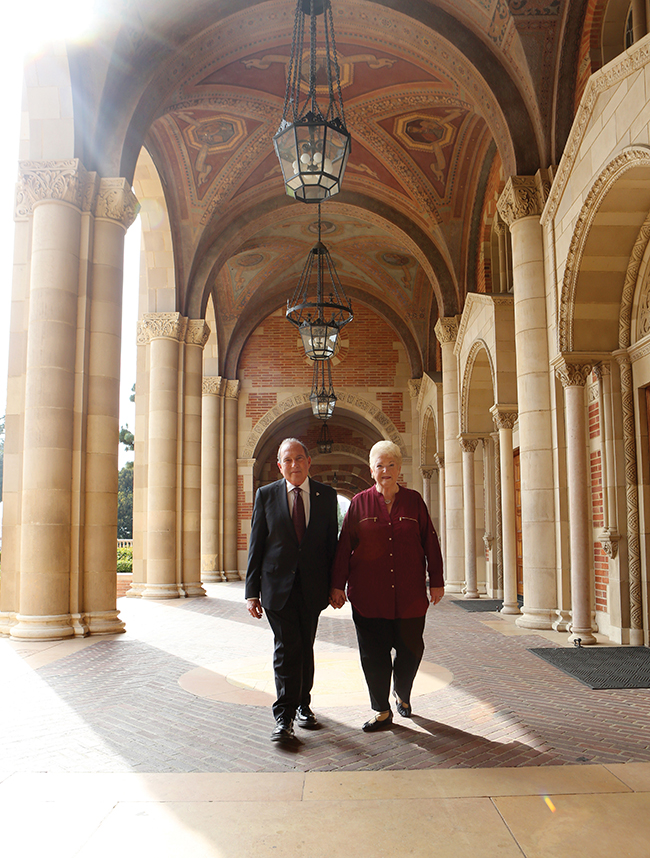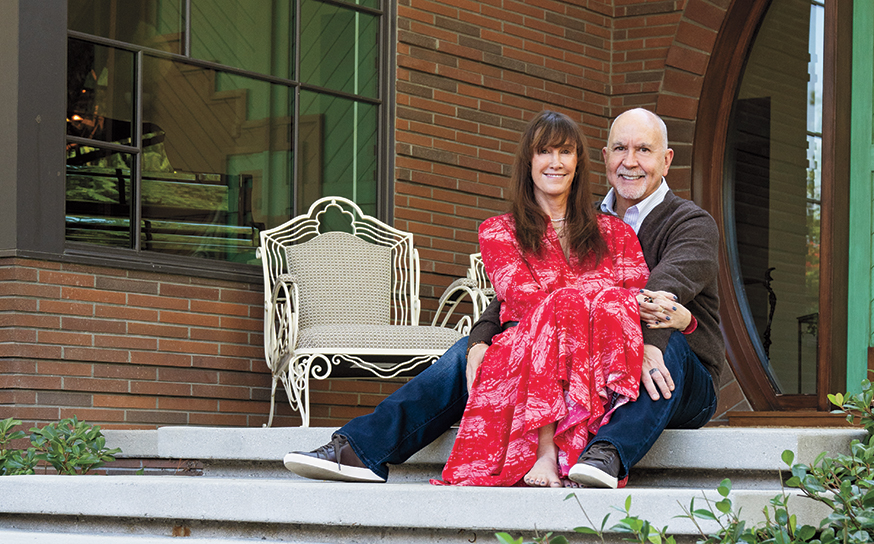
Dreams, Fulfilled
With their 40-year-old nonprofit, the Fulfillment Fund, an Encino couple is helping make college a reality for thousands of disadvantaged students.
-
CategoryPeople
-
Written byRachel Heller Zaimont
Dr. Gary Gitnick and his wife, Cherna, love to talk about their kids. They reminisce with obvious pride about Ivy League universities, law degrees and public service careers.
But they aren’t referring to their own grown children. They’re talking about the thousands of students they’ve helped achieve college success and meaningful careers through their nonprofit, the Fulfillment Fund.
Since 1977, the LA-based organization has offered mentoring programs, rigorous college prep instruction and a range of support services to students from underprivileged backgrounds throughout LAUSD schools. The ultimate aim, the Gitnicks say, is to put higher education within reach for kids who might otherwise miss out.
“We offer a motivational curriculum that actually trains the student in how to get into college and how to stay in college,” Gary says. “I wanted to try to show these young people it’s possible to pull yourself up, become educated and make something of yourself.”
After relocating from Nebraska, the couple saw how growing inner-city turmoil and gang violence was ruining the lives of LA youths. “In our view, the problem was poverty,” says Gary, a professor of medicine and chief of the division of digestive diseases at the David Geffen School of Medicine at UCLA.
He continues, “A lack of opportunity leads to hopelessness. It seemed to me and Cherna that what needed to be done was to develop a mechanism providing opportunity to kids who had no hope and make it possible for them to become citizens.”
It started with a holiday party Gary hosted at UCLA for children with disabilities—a simple gesture to inspire joy and wonder. But he yearned to make a more significant impact.
Gary and Cherna co-founded the Fulfillment Fund with a mentoring program that paired trained volunteer role models with students from low-income communities. The system worked; high school attendance and graduation rates improved among participants. Next they developed a classroom-based college prep curriculum, focused on college essays and applications and connecting students with college counselors—a precious resource amidst LAUSD budget cuts.
At almost 40 years running, the Fulfillment Fund has built an astonishing track record. In high schools where only 50% of students traditionally graduate, 90% of Fulfillment Fund students get diplomas. Of those, 90% enter college—most with sizeable scholarships—and of these students, 70% finish with a degree.
“We have kids who are doctors, lawyers—it’s unbelievable,” Cherna says. Adds Gary: “The feedback we get is that regardless of which program they’ve been in, the experience is life-changing.”
The nonprofit works with nearly 3,000 students in LA per year—an impressive feat for an organization that subsists entirely on private donations. One of its two yearly fundraisers, the 5th annual Songs of Our Lives, will be held June 7.
Yet the Fulfillment Fund’s aid comes with a catch: Recipients are expected to return the favor. “We tell the kids, ‘You can come back and write a check if you want, but it would be nice if you came back and mentored a child,’” Cherna says.
A number of alumni have become board members and donors, and these days many of their mentors were once mentees themselves. “What we try to instill from day one is: We are not giving charity by doing this program. We’re giving opportunity,” Gary says. “It’s your job, for the rest of your life, to give back.”











